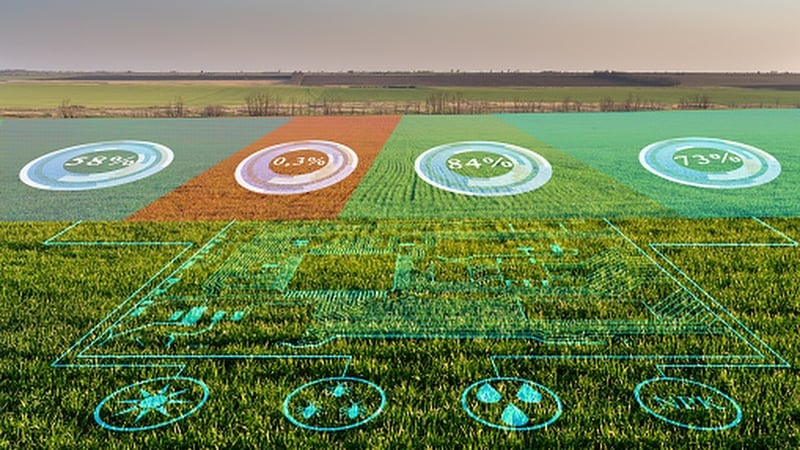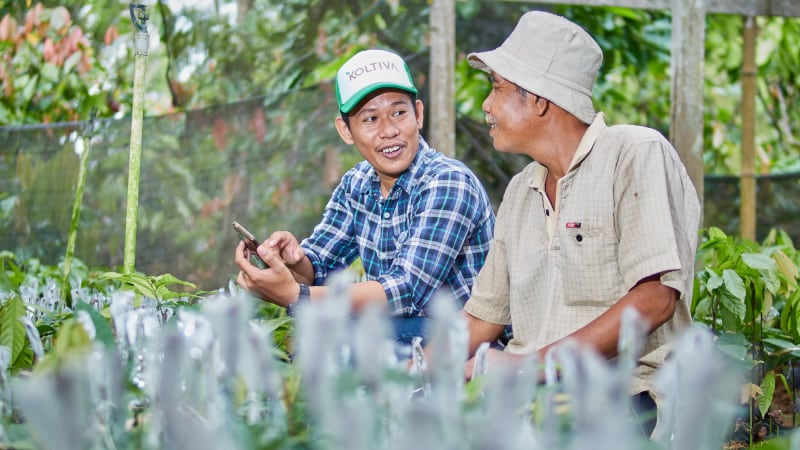The move is part of its long-term Nescafe Plan 2030 regenerative agriculture strategy.
Indonesia is one of the biggest suppliers of coffee beans for Nestle and its key coffee brand Nescafe, but many of the farmers in this supply chain are smallholders which increases overall vulnerability to risks from uncertain climates and weather events.
In a bid to provide local farmers with more financial certainty and shielding against these potential threats, Nestle is now piloting a strategy to provide weather insurance for them.
“Weather insurance can help to establish a support mechanism for smallholder coffee farmers in Indonesia [as] it allows them to access financial resources to re-establish their crops in the event of irregular weather conditions,” Nestle Green Coffee Development Global head Marcelo Burity said via a formal statement.
“It can also help to build resilience in coffee farms [in a time when] climate change is putting coffee-growing areas under pressure [and] smallholder coffee farmers especially are exposed to the risk of their crops [being affected by] these irregular weather conditions.
“We will be piloting this weather insurance programme in conjunction with climate insurance specialist Blue Marble in Indonesia [and start by] providing financial protection to over 800 smallholder farmers [to cope with] unpredictable weather patterns of rainfall and severe drought.”
A key element of this insurance scheme will be the use of high-tech satellite based climate data to determine the impacts and outcomes of weather-related changes on the insureds’ coffee bean output, and determine the relevant payouts accordingly.
“Satellite-based climate data will be used to determine when coffee output has been impacted by either too much or not enough rainfall during key phases of the crop cycle,” said the firm.
“Payments will then be issued automatically to registered coffee farmers that have been affected, according to the severity of the weather [and as an] integral part of the Nescafé Plan 2030.
“The objective is to support the long term sustainability of coffee and to help improve farmers' livelihoods, [so] Nestlé will be deciding whether to expand this approach to other Nescafé sourcing locations around the world based on the results of this pilot.”
Financial stability key to regenerative agriculture transformation
One of the Nescafe Plan 2030’s key objectives is to facilitate regenerative agricultural practices in the area of coffee farming – but an important element needed to support this change is to enhance their practical knowledge of such practices.
“Moving to regenerative agriculture can help coffee farmers restore soil health, reverse biodiversity loss, and strengthen ecosystems [whilst] reducing the amount of greenhouse gases released into the atmosphere – but this change requires access to knowledge as well as the time to learn and implement,” Nestle Global Head of Sustainable Agriculture Development Pascal Chapot said.
“We have developed a guidebook on best practices to use and adapt to different farming contexts to help farmers transition to regenerative agriculture and become more resilient to climate change and diversify their income sources [as we know that] knowledge is key.”
But in terms of the other factor mentioned which is the time to learn and implement such changes, the crucial key here for the farmers is financial stability, who would be unlikely to be able to make wide-scale changes to their farming practices otherwise as a lack of income would make all the difference to feeding their families.
As such, initiatives such as Nestle’s work with climate insurance to ensure continued livelihoods even through the worst of situations are crucial to pushing sustainable agriculture forward.
It is thus hoped that more of such financial stability-oriented strategies are in the works as opposed to solely knowledge-based ones, such as initiatives to ensure farmer incomes even amidst making the required transformative changes towards regenerative agriculture.




